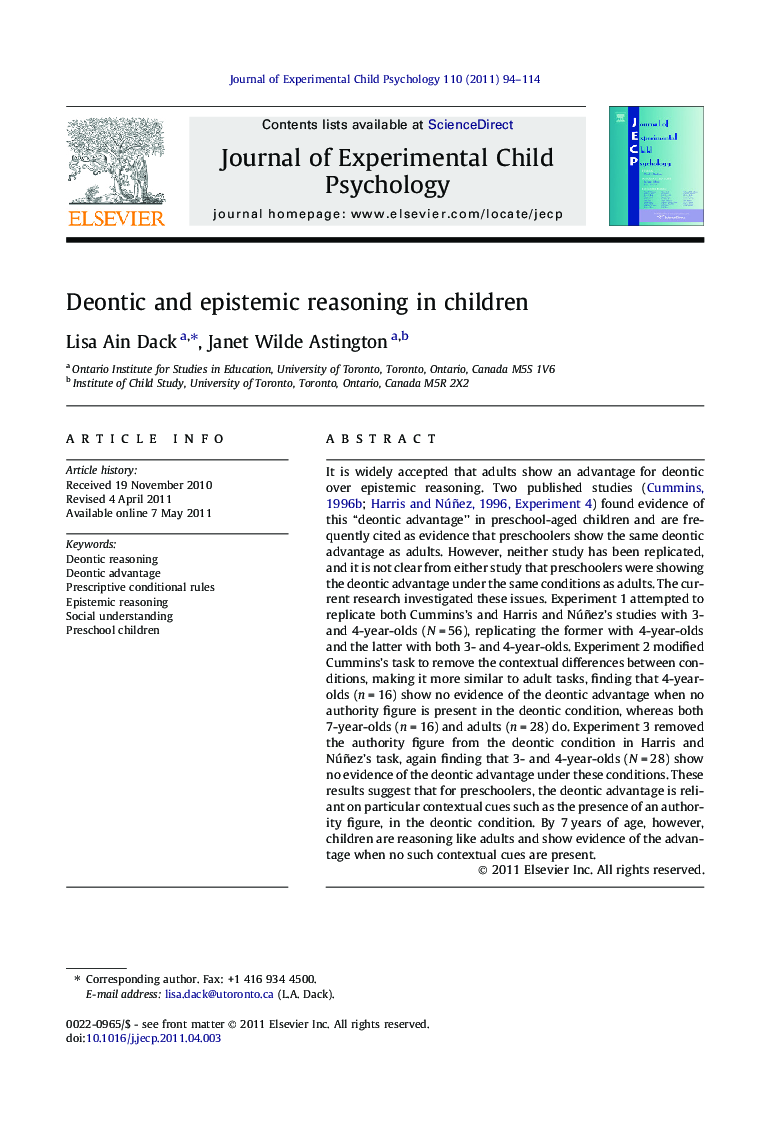| Article ID | Journal | Published Year | Pages | File Type |
|---|---|---|---|---|
| 918469 | Journal of Experimental Child Psychology | 2011 | 21 Pages |
It is widely accepted that adults show an advantage for deontic over epistemic reasoning. Two published studies (Cummins, 1996b; Harris and Núñez, 1996, Experiment 4) found evidence of this “deontic advantage” in preschool-aged children and are frequently cited as evidence that preschoolers show the same deontic advantage as adults. However, neither study has been replicated, and it is not clear from either study that preschoolers were showing the deontic advantage under the same conditions as adults. The current research investigated these issues. Experiment 1 attempted to replicate both Cummins’s and Harris and Núñez’s studies with 3- and 4-year-olds (N = 56), replicating the former with 4-year-olds and the latter with both 3- and 4-year-olds. Experiment 2 modified Cummins’s task to remove the contextual differences between conditions, making it more similar to adult tasks, finding that 4-year-olds (n = 16) show no evidence of the deontic advantage when no authority figure is present in the deontic condition, whereas both 7-year-olds (n = 16) and adults (n = 28) do. Experiment 3 removed the authority figure from the deontic condition in Harris and Núñez’s task, again finding that 3- and 4-year-olds (N = 28) show no evidence of the deontic advantage under these conditions. These results suggest that for preschoolers, the deontic advantage is reliant on particular contextual cues such as the presence of an authority figure, in the deontic condition. By 7 years of age, however, children are reasoning like adults and show evidence of the advantage when no such contextual cues are present.
